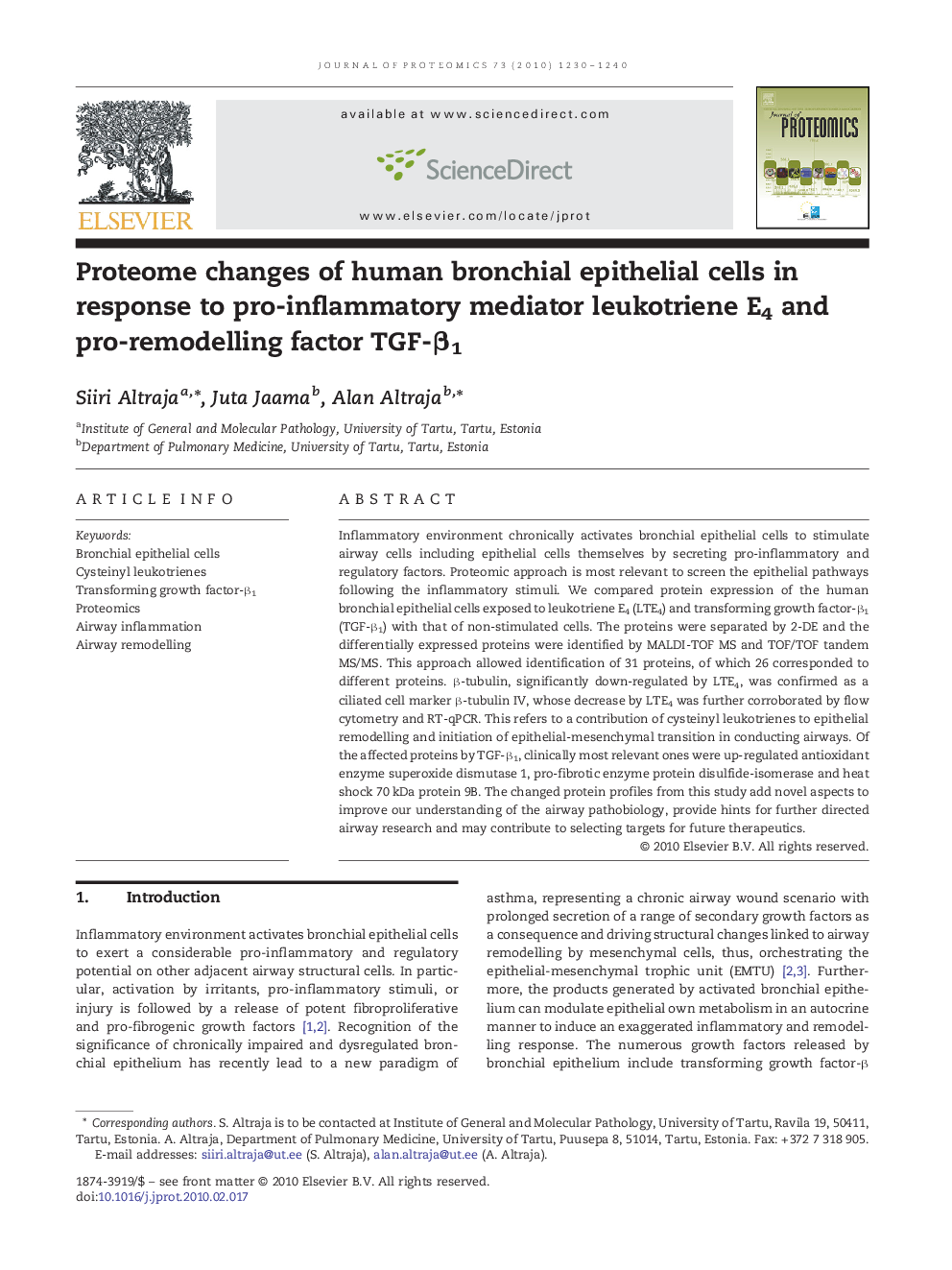| Article ID | Journal | Published Year | Pages | File Type |
|---|---|---|---|---|
| 1225778 | Journal of Proteomics | 2010 | 11 Pages |
Inflammatory environment chronically activates bronchial epithelial cells to stimulate airway cells including epithelial cells themselves by secreting pro-inflammatory and regulatory factors. Proteomic approach is most relevant to screen the epithelial pathways following the inflammatory stimuli. We compared protein expression of the human bronchial epithelial cells exposed to leukotriene E4 (LTE4) and transforming growth factor-β1 (TGF-β1) with that of non-stimulated cells. The proteins were separated by 2-DE and the differentially expressed proteins were identified by MALDI-TOF MS and TOF/TOF tandem MS/MS. This approach allowed identification of 31 proteins, of which 26 corresponded to different proteins. β-tubulin, significantly down-regulated by LTE4, was confirmed as a ciliated cell marker β-tubulin IV, whose decrease by LTE4 was further corroborated by flow cytometry and RT-qPCR. This refers to a contribution of cysteinyl leukotrienes to epithelial remodelling and initiation of epithelial-mesenchymal transition in conducting airways. Of the affected proteins by TGF-β1, clinically most relevant ones were up-regulated antioxidant enzyme superoxide dismutase 1, pro-fibrotic enzyme protein disulfide-isomerase and heat shock 70 kDa protein 9B. The changed protein profiles from this study add novel aspects to improve our understanding of the airway pathobiology, provide hints for further directed airway research and may contribute to selecting targets for future therapeutics.
Graphical abstractFigure optionsDownload full-size imageDownload high-quality image (699 K)Download as PowerPoint slide
